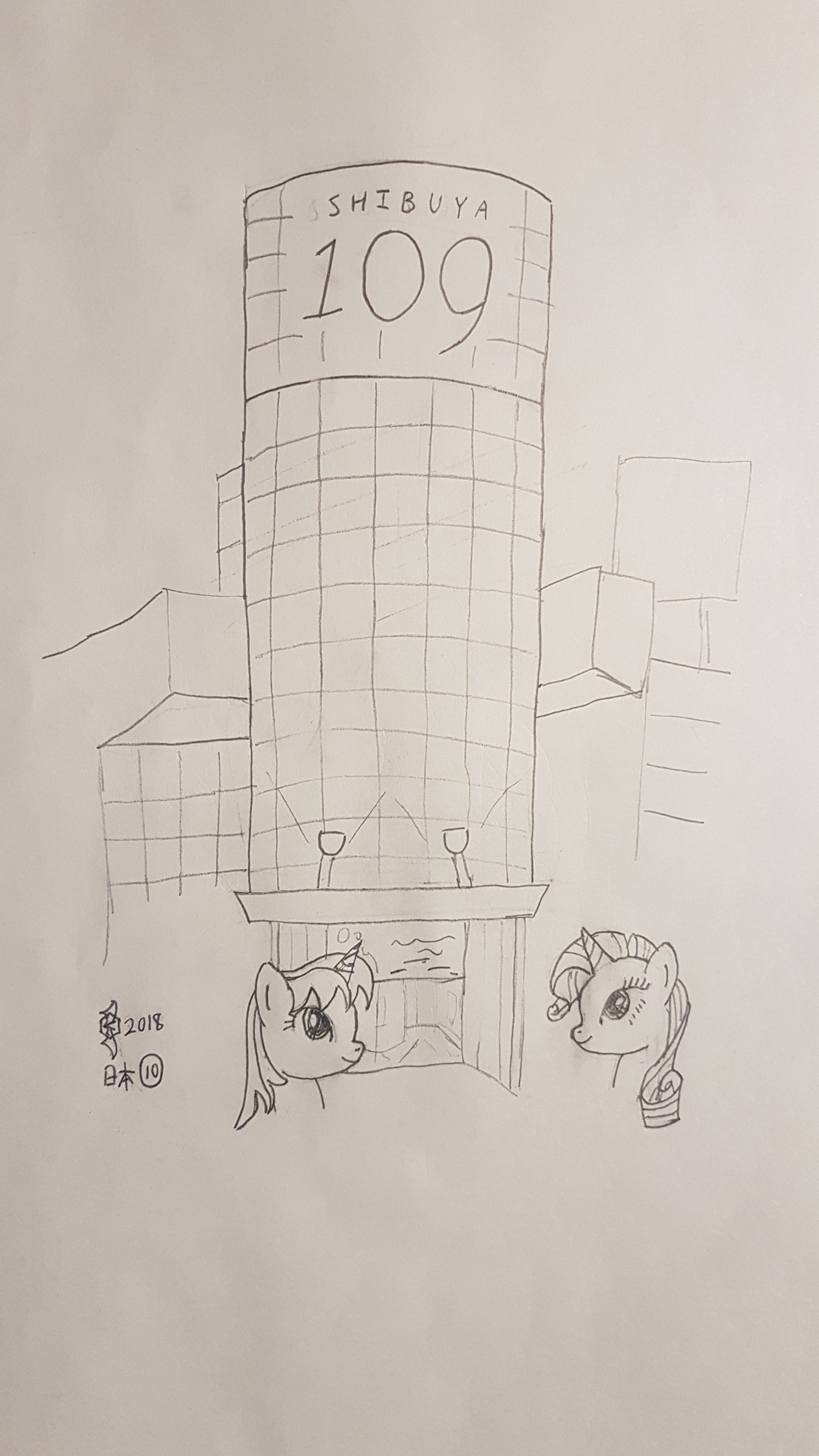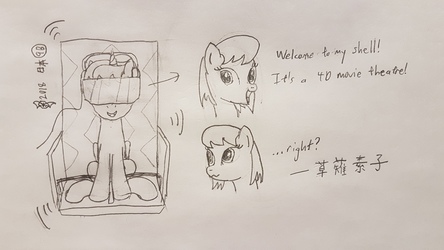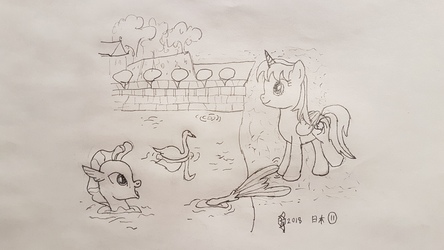Sign In
CloseSpindle: There are three major convenience stores in Japan, which are 7-Eleven, FamilyMart and Lawson. The area containing our accommodation seemed to be FamilyMart-dominant, but all three chains offer similar items, so there's nothing to fight and grow cold about. One of those common items is oden, heartwarming and quite cheap at once; buns of many flavours are also packaged for breakfast or just a quick snack.
Parcly Taxel: Sure you were winking at it, windie – I did have buns and cereal for breakfast, putting a softboiled egg into the bun. With regards to out-of-the-ordinary cuisine, Tokyo is a centre for the fusional type and has more Michelin stars than any other city on the planet. Many of those starred restaurants cater to the foreigners though, not the locals, and our aim on this trip was to live like a local.
Nishi-kasai (Tōzai) Waseda 早稲田
Spindle: Waseda is a university town brimming with its students' zeal; Parcly felt exalted upon stepping into their campus as a former undergraduate herself. Local shops often run student offers, and the youthfulness on display was a far cry from the terminus of the Tokyo Sakura tram, one of only two tram lines left in the city.
Parcly: Otherwise known as the Arakawa Line (荒川線), this service was saved from the underground trains by citizen opposition. A heightened age suggestive of inner wisdom shows in its operation: bells ringing to signal the tram's departure, sounds of the clutch moving between positions, the line running in small valleys between rows of flats. Along its length I always saw an elderly pony secure in their seat, staring forward.
We got off at Kōshinzuka (庚申塚), where a corner shop was shoved into my face. Accepting the incident, I had yakisoba (焼きそば, much like economical bee hoon) for lunch and red bean glutinous rice as dessert.
Spindle: Within direct sight from the tram stop was Sugamojizō (巣鴨地蔵), a "Harajuku for old folks". Most shops on this street are local, worn out around the edges, crammed with assorted items at relatively low prices. The Japanese flag hangs at certain points, a rare occurrence since the flag is often associated with past wrongs of conquest and subjugation in Japan.
Sounds were limited to hoofsteps and casual talk until I came across a stallion having some argument with a police pony. We were then at a special Maruji store selling only red products – including red underwear – and Parcly had bought and eaten an apple pie from further up the street. By the time we continued our walk, more police officers and a van had been sent in, yet the commotion was still going. I nibbled off a little of their hate before rejoining Parcly's heart.
Parcly: I didn't feel any pulse of coldness from Spindle's bite, since those emotions weren't mine. Bicycles plied Sugamojizō's latter half, seeing as it abutted an arterial road; arriving at said intersection, I retraced my steps and took the tram to in front of Machiya Station (町屋駅前), having consumed a few more tidbits.
Machiya (Chiyoda) Yushima 湯島
Spindle: There is the tendency for unrelated stations within the special wards to cluster within walking distance, allowing multiple entries into a given location. From Yushima we followed the Chiyoda tracks overground to reach the Yodobashi branch in Ueno (上野), capturing those romantic scenes of urban Japan with neon lights above busy streets. Parcly took a brief hoof rest.
Ueno-hirokōji 上野広小路 (Ginza) Shibuya
Spindle: Train stations shelter from outside cold and wind, but unless properly designed can't do the same for gusts by passing trains. More than once I enjoyed the rush, be it on-platform or tunnelled into entrances.
Parcly: The next few hours were just a tour of Shibuya complete with its two scramble crossings (the main one beside the train station and a smaller three-way one below Shibuya 109). Like Times Square in Manehattan, this area is a microcosm of the world, drawing fame from physical traffic. Also on our path were peripheral shops serving office workers too shy to unwind in the open.
For dinner we went to the Genki Sushi (元気寿司) branch closest to the main Shibuya crossing. This is the prototypical sushi bar, where the seats form lines over which sushi plates are delivered, in this case by automated rolling platters. I ordered a little too much (two croquettes), but fortunately any unfinished sushi can be taken away for consumption after some digestion has taken place.
Shibuya (Hanzōmon) Kudanshita (Tōzai) Nishi-sakai
Spindle: It can take a good deal of time for a tourist to get used to Shibuya or Shinjuku or indeed any part of Tokyo, especially before they leave. However, walking around to remember the main buildings and shops and the configuration of roads or alleys linking them goes a long way.
Submission Information
- Views:
- 479
- Comments:
- 0
- Favorites:
- 0
- Rating:
- General
- Category:
- Visual / Traditional




